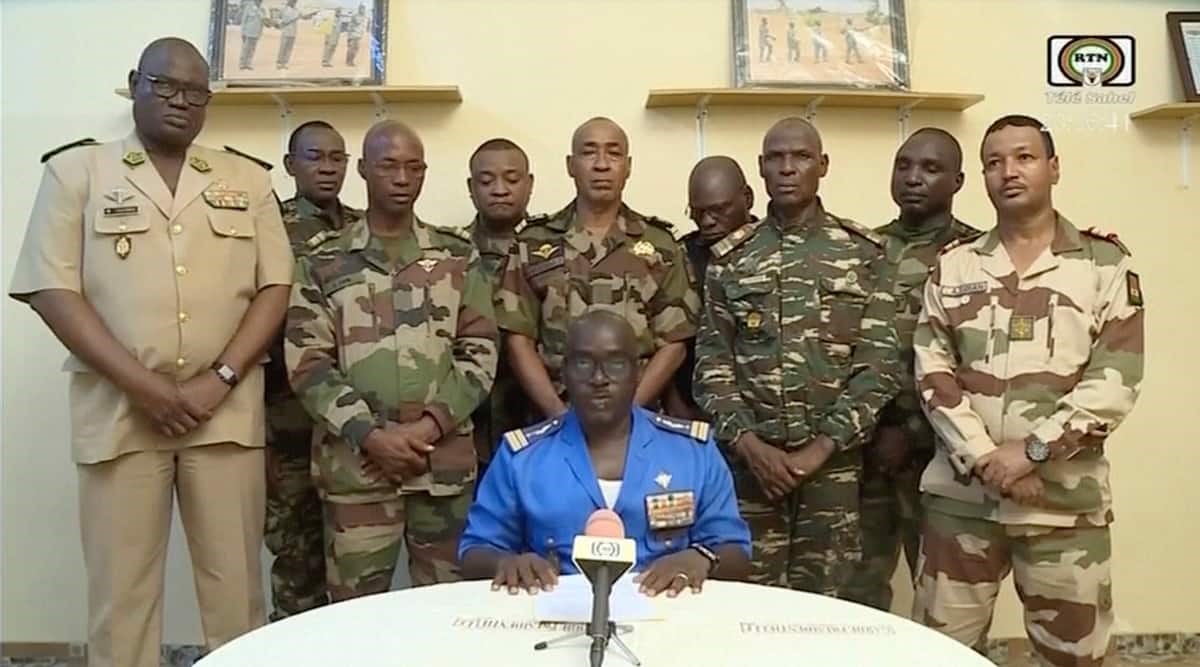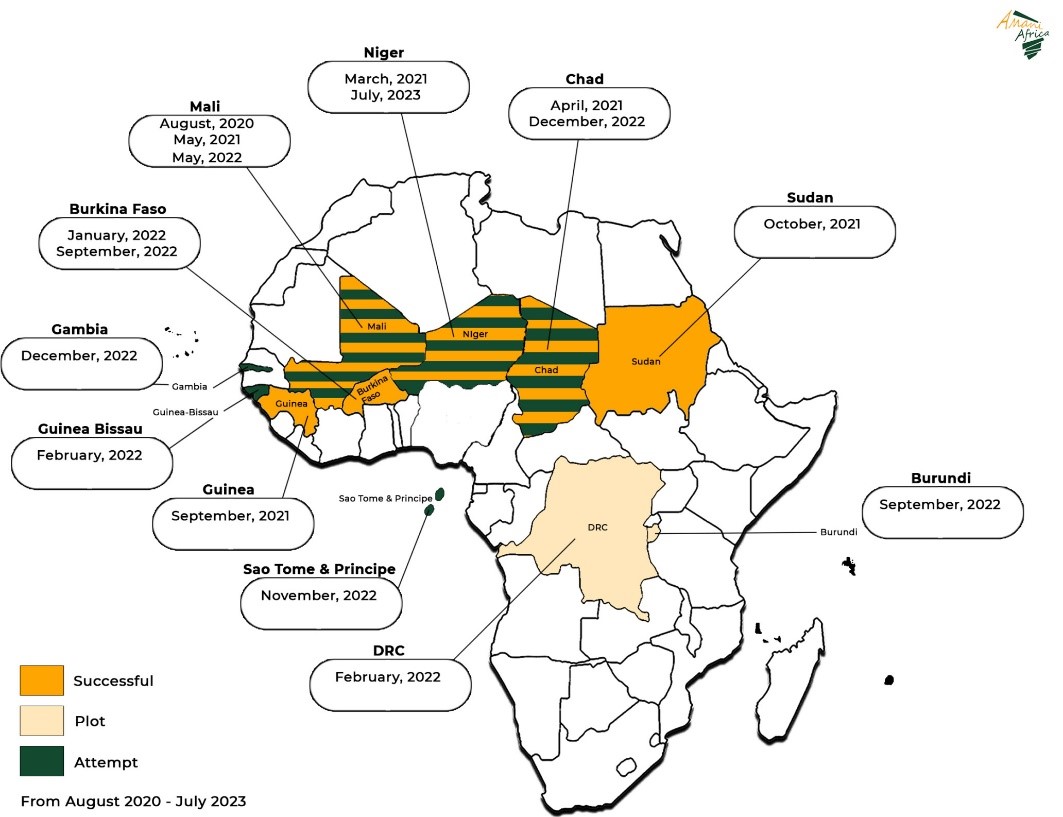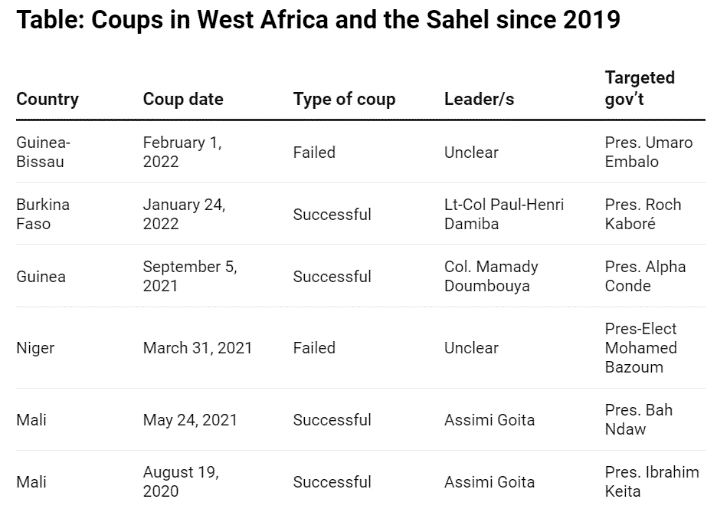Free Courses Sale ends Soon, Get It Now


Free Courses Sale ends Soon, Get It Now



Disclaimer: Copyright infringement not intended.
Context
What is a Military Coup?
The recent coup in Niger
Factors that led to the coup
Implications for Niger and the region

Reasons behind so many coups in Africa

The Way Forward
|
PRACTICE QUESTION Q. Why have there been so many coups in Africa recently? To avert future coups and respond to current ones, there must be a radical change of direction. Elucidate. |
https://www.politico.com/news/2023/07/27/niger-coup-00108451
© 2024 iasgyan. All right reserved